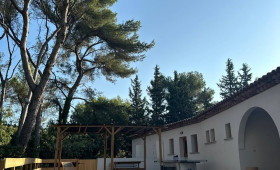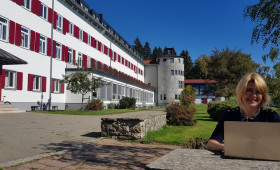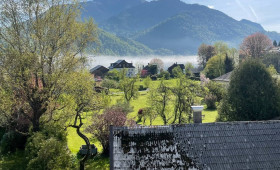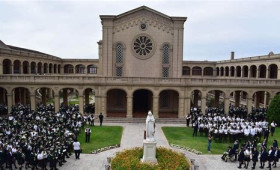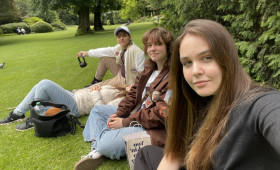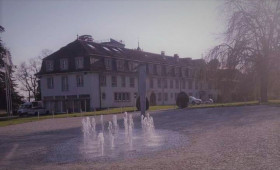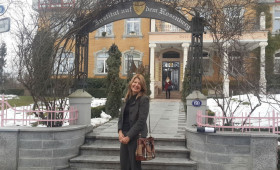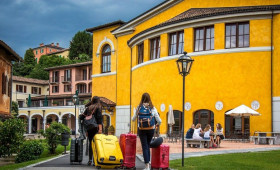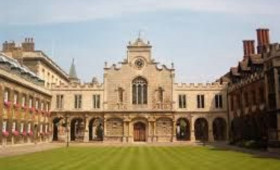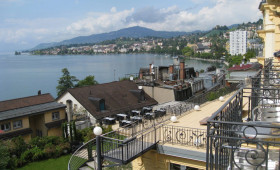Nobel International School of Algarve
03.10.172712
British boarding school Nobel International School of Algarve in Portugal
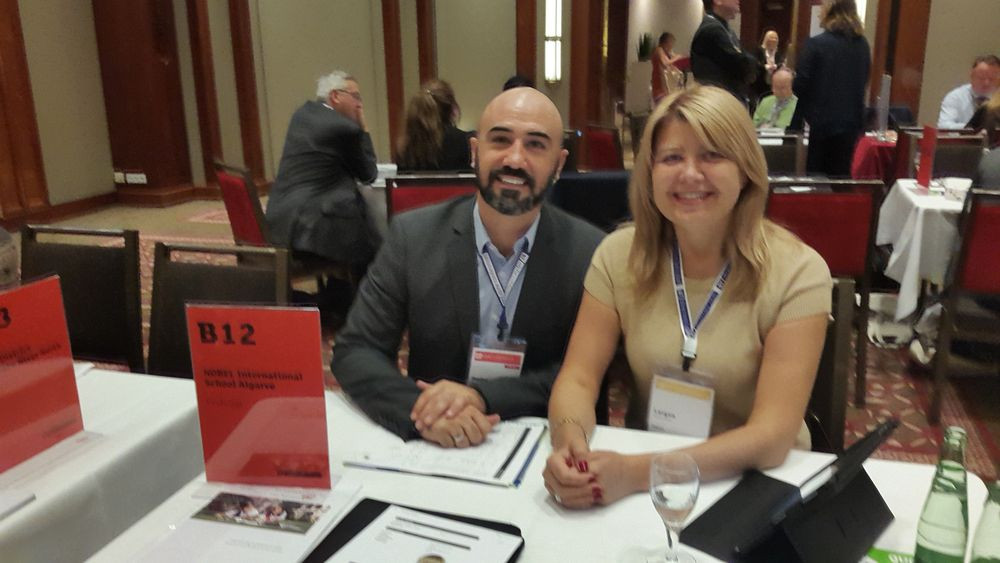
I met Pedro at an international conference on secondary education abroad in Munich and he told me about the history of the school and gave an interesting interview:
R: In the mid-60s, many foreigners from northern Europe moved to the Algarve region: families from Great Britain, Scandinavia, Holland, Germany moved here and bought houses to settle in this magnificent region of Portugal. Since by the end of the 60s the population of the region was mainly foreigners, it became necessary to open an international school.
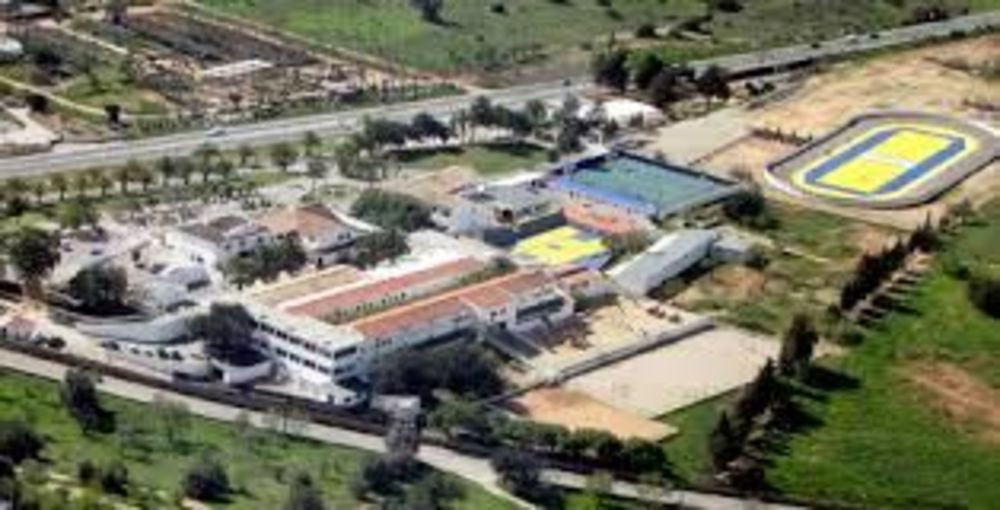
The school was opened in 1972 to provide an English-speaking education for relocated families of foreigners.
The influx of foreigners increased in the 80s, but it became necessary to open a boarding house for schoolchildren, whose parents partly left Portugal on business. So, for almost 10 years, a small boarding house for students was located on the school grounds. But as the need for space continued to grow, the school had to close the boarding house in 1989 to use more classroom space.
Now the school occupies the same area, 90 thousand square meters, and accepts from 650 to 750 students a year. Our students include children of thirty nationalities because the Algarve is a very popular region for foreigners to buy real estate. Until 2012, the school grounds could cope with such a number of students and we did not have to look for students from abroad. But in 2012, the school joined the Nobel international network and it was decided to buy new areas for school dormitories to revive the school as an international boarding house.
10 minutes from the school we bought a hotel located right on the coast and rebuilt the building into a school boarding house. In 2013 we opened a boarding school with one international student staying at the boarding house. At the same time, 10 educators and teachers lived in the building. The next year we already had 12 students at the boarding house, In 2015 we started the academic year with 18 students and from the second semester several more will join us.
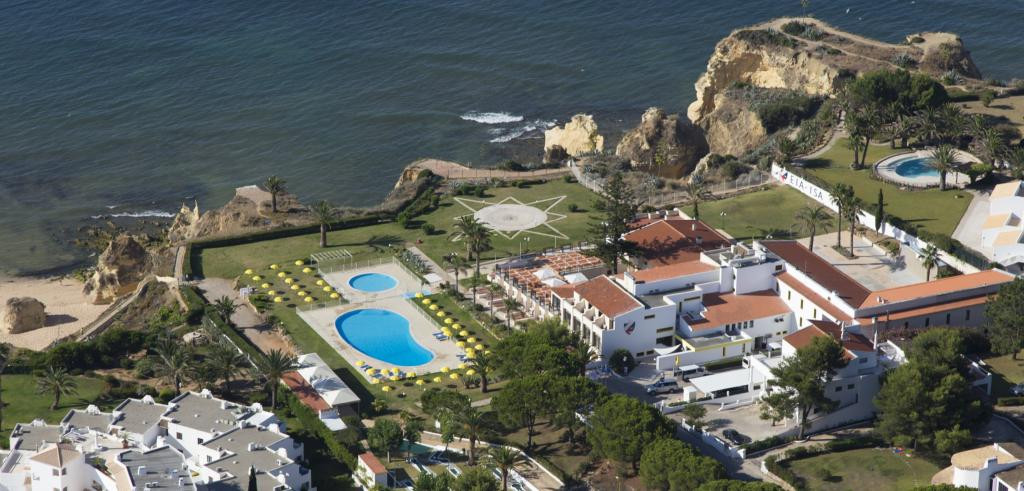
In the boarding house we have students of 13 nationalities, students from the age of five study in the day school, but we accept students from 12 to 18 years old in the boarding house.
L: May I ask, what did joining Nobel give you?
P: This is a mutually beneficial collaboration. Before our reunion, the Nobel group opened schools from scratch, that is, they came to the country, built a school, opened an IB program and raised students to complete an IB program from the very youngest students. When our school joined the group, they got a school with 42 years of history. At the same time, our school has always taught the British A-level program, which we continue to do. But since we joined the group leading the preparation for IB programs, and we have, in addition to high school, 2 more elementary schools, we will prepare our younger students to choose between two programs: IB and A-level. The group won, as now they teach in two programs, and the group has a school with a long history. The school won, as it also received an additional program and a new boarding school. In addition, we have a great opportunity for international exchange within the group. Our students can travel to another country for a semester or a year, teachers travel to exchange experience, we have a lot of joint activities. I must say that there are only 2 boarding schools in the group - in the Algarve and in Vienna, the rest of the schools have not yet grown to the size of a high school, so the exchange of students is carried out at the level of Vienna and the Algarve. But students do a lot of projects online, between all groups in the school. Of course, as the schools of the group grow, we will have even more measurements.
L: You teach IGCSE and A-level programs. Does this mean that at any time, every student can move to the UK and join a school there.
P: Keep in mind that we have worked mainly with day students so far. So yes, if the family moved to the UK, the children would go with them and join the school there. Of course, when the 2008-2009 crisis began, many families left Portugal. People left for work and children left with their families. But, our students never left to change schools, everyone wanted to finish school here. As for international students who come without parents and live in a boarding house, we generally cannot have such statistics at all, because 2 years ago there was only one student living in a boarding house, and he still did not finish school.
L: Well, sometimes students move to another country and change schools because of the results.
P: We have always had good results. However, keep in mind that we cannot be selective in our admission of day students. If tomorrow seven from Britain move to the Algarve and there are two children in the family, then they have nowhere else to go to study, only to our school. Therefore, we must accept all foreign students. Our school is not the only one in Portugal to offer an international program, but it is the largest. Of course, if we are talking about the international students whom we accept to the boarding school, then here we have to be selective, especially in high school. Because if a student arrives 15-16 years old, and he has bad English or results, then let's be realistic - he will not pass the A-level exams in a few years. But we have a lot of day students who are usually with excellent or native English, in which case we must accept such a student at any age.
L: Tell me if foreigners who have come to live in the Algarve need to learn Portuguese.
P: Absolutely not, the Algarve is an English-speaking region. On the contrary, the Portuguese who live here have to learn English.
L: I heard that this is the most expensive region in Portugal.
P: No, absolutely not. Perhaps real estate here is more expensive than in other regions, but believe me, compared to the rest of Europe, living here is very cheap. Of course, a restaurant on the beach will be more expensive than somewhere in a residential area, but still, you will be pleasantly surprised by how cheap it is.
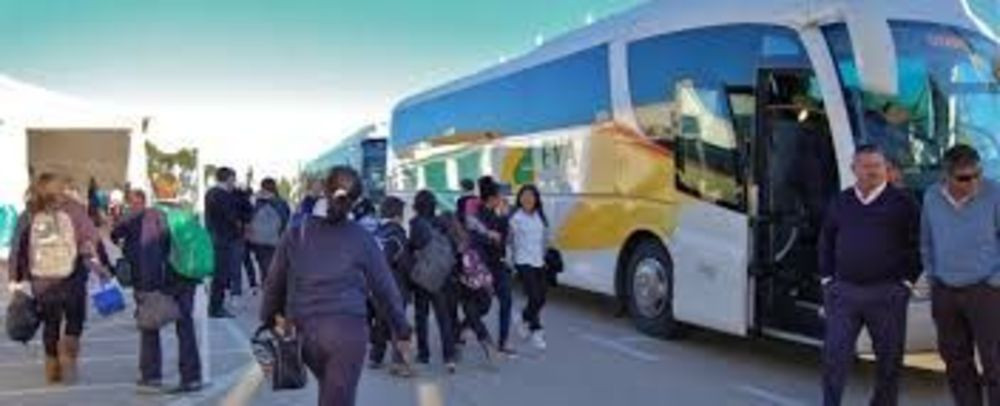
L: Do you have buses that bring boarding students to school.
P: Of course. School starts at 9.10 am. Children eat breakfast at the boarding house and arrive at school at 8:45. Every morning begins with meditation, then lessons. At noon - lunch at school and lessons again. After school, light snacks, and those students who have sections after school remain at school, the rest go to the residence, where classes are organized under the supervision of teachers. In addition, the residence has a swimming pool. And dinner is organized at the residence. We allow students over 15 to do their homework in the room, but we have a small boarding house and all students are like one big family. They themselves prefer to do their homework in the study rooms, where there are always teachers who will help them.
L: Do you have international students who choose the Portuguese program. I know that tuition at Portuguese universities is free, but in order to enter there, you need to study in a Portuguese program.
R: All students who come with a boarding house study according to the British program. We have many international students at our school who have been living in Portugal for so long that the whole family has a Portuguese passport for a long time, and then yes, many choose the Portuguese program. For example, my numbers show that there are 6 students from Ukraine at the school. In fact, we have about 20 Ukrainian families, but they have been on Portuguese passports for a long time, and in statistics they pass as Portuguese. Children speak Portuguese for a long time, and, of course, such students choose the Portuguese program. In addition, all international students want to go to the UK, which is why they choose the UK program. But, if a student wants to enter a Portuguese university, then at the end of the A-level, he only needs to pass Portuguese. In addition, it is so much cheaper to study at our school that, of course, students prefer to finish school here. Here you get everything: a good education, great weather, food, and all this is much cheaper for us than anywhere else.


